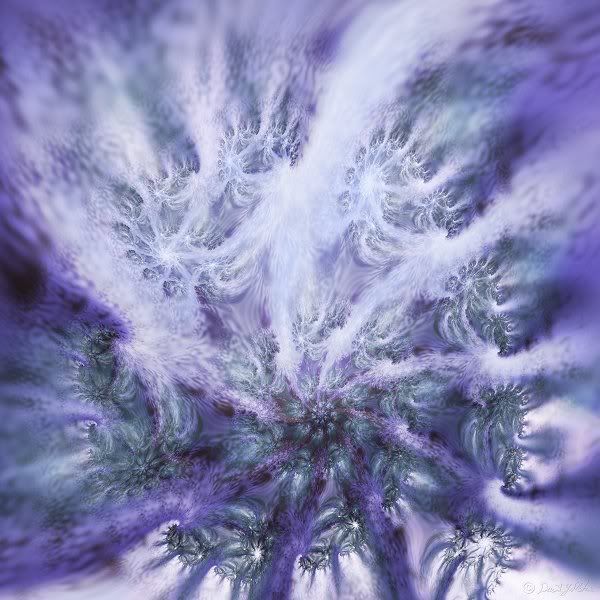Could one of parapsychology's most bizarre, least understood, and least researched phenomena also be among the most common?
We're talking about jottles.
Never heard of such a thing? It's not surprising, since "jottle" (a diminutive form of JOTT, "Just One of Those Things") is a rarely used term, even in parapsychology.
Nicola Holt, writing in the April 2004 Paranormal Review (a publication of the Society for Psychical Research), reports on an SPR study day dedicated to jottles.
A jottle is described as "a general term for discontinuities with time and space." More specifically, six variants have been identified, Holt says:
Walkabout. "The basic jottle, where an object disappears from a known location and reappears in a new location."
Comeback. "An object disappears and later reappears in the same place."
Flyaway. "The object disappears and never comes back."
Turn-up. "An object appears in a location where it couldn't have been before." Not to be confused with a turnip, a bulbous root vegetable.
Windfall. "An object appears that has never been seen before."
Trade-in. "An object disappears, and is replaced with a similar object."
One characteristic of a jottle is that it happens in otherwise normal circumstances, unlike the apports (materialized objects) that occur in some séances. Since SPR is a scientific-minded organization, Holt points out that "it is essential in all cases that there be an exceptionally clear perception and recollection of where the object had been before, and/or that an object had not been in a particular place before. Good cases are subject to usual quality criteria that strengthen the 'evidence,' such as the presence of second witnesses, reliable witnesses, immediate recording and reporting, physical restrains, and seeking to rule out normal explanations."
The article gives examples of each type of jottle. I'll include only two to give you the flavor. The people quoted are SPR members who spoke at the study day.
David Rousseau cited a number of 'comeback' jottles. One concerned Manfred Cassirer [author of several books on parapsychology], who reported that on 9th October 1987, he went to his desk to get some wooden toothpicks, only to find they were not there. The next day he bought a new packet of toothpicks and placed them in the same spot, and was confronted with the original packet. Manfred lived alone, and although his next-door neighbour had keys for his home, she could not be implicated due to timing. The involvement of mundane objects seems to be typical of jottles.
Maurice Grosse told the tale of 'new keys for old', which may best be described as a 'trade-in'. The lock on the front door of Maurice's house was changed after his wife's keys for it had been lost on an outing. The old lock and its remaining keys, which were 40 years old, were kept. Of four new keys, Maurice and his wife took one each and two space keys were kept in the study.I have no data to prove it, but I suspect that most people have experienced a jottle. Usually it makes no impression, or is quickly forgotten, precisely because it concerns a "mundane object." And even if no ordinary explanation comes to mind, well, it's "just one of those things."
However, there were soon two new keys on his wife's key ring, one of which did not fit the new lock! One new key was in the study, which also did not fit the new lock! The keys had the name of the most recent locksmith on them, who affirmed that they were the keys he had recently cut. However, they were stamped with an old telephone number, which was two years out of date. When Maurice tried the new, unworn keys in the old lock, they fitted it perfectly. The locksmith was never in possession of the old lock. [When] asked if the old keys were still upstairs with the old lock, Maurice affirmed that they were.
Recently I experienced what may have been a "flyaway" jottle. A pair of Levi's Dockers went missing. I looked in the obvious places — the bottom of the closet, drawers, the laundry, etc. Puzzled, I looked in un-obvious places: under the bed, under the sofa (even though it seemed like an absurd place for the pants to be hiding), behind things, inside things … now, I can't claim I turned the whole house inside out, but it was a thorough search that I think would have satisfied a detective team looking for a murder weapon.
Our playful cats like to move objects around, but I can't imagine them moving trousers very far, let alone depositing them somewhere secret. I put it to you that almost everyone has experienced something simply disappear when they weren't looking, but because it was small or insignificant, they just wrote it off as lost. That too happened to me yesterday with a contact lens that I was fairly sure I put in its case. It was nowhere in the vicinity of where I had (I thought) transferred it to the case.
Doesn't the "comeback" ring a bell with most of us? Haven't we looked for an object where it should be, unable to find it, and then later discovered it in the exact place we looked?
The study group discussed two basic explanatory "models" for jottle phenomena. First, "internal force," in which the mind of the witness interacts with and influences the "world of objects," producing observable effects; and second, "external force," or "spirits" playing jokes.
That jottles often appear to be mundane and without obvious meaning to the experiencer, made some question the role of 'intention' [by the witness] in their genesis. However, Julie Rousseau warned us against assuming therefore that an external force might be responsible, and Maurice suggested that in some cases the two might interact.If you think jottles are an odd business, wait till I tell you about apports …
Describing the jottle as 'the everyman's PK [psychokinesis, moving objects by mind power]', David Rousseau argued that the jottle is an under-reported member of a continuum of psychic phenomena involving the teleporting of objects, including apports in séances and poltergeist events.

June 30 I found my contact lens hanging in the closet and the Levi's wadded up in the contact lens container. I knew there had to be a normal explanation.





1 comment:
I love that word... jottles!
Post a Comment